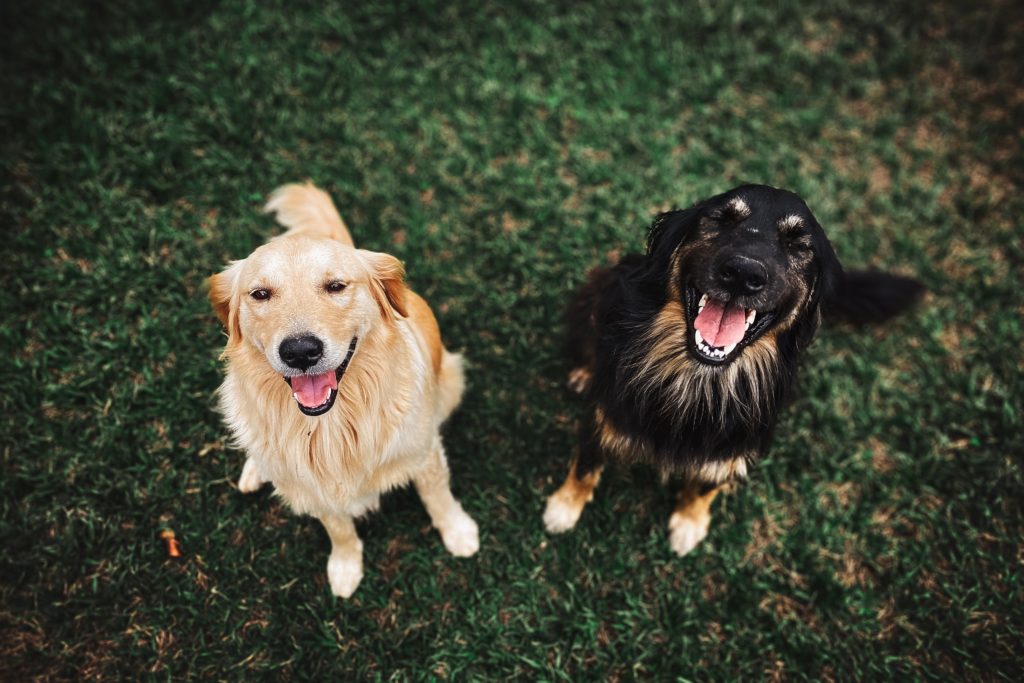Gallstones are a word no dog owner wants to hear. These pesky little calcifications are formed by a process called cholelithiasis wherein the gallbladder becomes home to small, rock-like deposits of a bodily fluid called bile.
Bile is produced in the liver and stored in the gallbladder until it is used during the digestion process to break down fats and heavy minerals. Bile is a crucial piece of the digestion process, and the gallbladder is specially equipped to handle and store this harsh bodily fluid.
Gallstones in dogs are small pieces of bile that have become calcified and hardened due to increased levels of bilirubin. Bilirubin is rich in calcium and is one of the chemicals that make up the overall composition of bile. When there is too much bilirubin present in bile, the body cannot secrete it fast enough, and the excess bilirubin slowly coagulates and forms a gallstone.
What Causes Gallstones in Dogs?
We know that gallstones are formed due to an inability to properly absorb and utilize excess bile, but why does this excess bile exist at all? Typically the most common cause of a gallstone has less to do with the gallbladder itself and more to do with the liver. Remember, it is the liver that produces bile, and the gallbladder is simply a storage facility for the bile until it is ready to be used during digestion.
The liver is also responsible for producing the necessary proteins needed for digestion, as proteins are the essential enzymes the body needs to break down food. We previously established that bile is used by the body to break down complex fats, minerals, and vitamins, but bile has another crucial function. As bile moves from the gallbladder to the stomach, it neutralizes the protein-rich stomach acid, allowing the nutrients in food to be easier to digest as the food moves to the intestines.
According to Dog Time, protein deficiency is one of the major causes of gallstones. To properly perform its function, the bile must counteract the protein-rich acidity of the stomach acid. Thus, a protein deficiency means less bile is needed, which interrupts the flow of bile in the gallbladder and causes bile build up. This buildup then causes the body to calcify the extra bile as a means of dealing with the excess bile.
Additional causes of gallstones include gallbladder tumors that prevent the natural flow of bile, infection, which causes the bile to become thick and sludge-like, and cell shedding, which deteriorates the inner walls of the gallbladder itself. Anything that interrupts the normal flow of bile, whether it be an auto-immune trigger or an immune response, can cause gallstones to form.
What Are the Symptoms?
Gallstones are tricky as they can be a painful endeavor, or they can go completely undetected. Depending on the size and severity of gallstones, you may not even know your dog has them. Typically, traditional symptoms of organ trouble begin to show if the gallbladder becomes infected and inflamed. Here are the top symptoms of gallstones, according to Pet MD:
- Vomiting
- Abdominal Pain and swelling
- Diarrhea
- Loss of Appetite
- Jaundice (skin turning yellow)
- Lethargy
- Dehydration
How Are They Treated?
 As with most other canine ailments, if your dog begins to show any symptoms associated with gallstones, you must take him for an immediate exam. The gallbladder is a small organ, and stones can indicate a buildup of bile. This buildup, especially when combined with the presence of gallstones, could lead to a rupture of the gallbladder, a potentially catastrophic incident.
As with most other canine ailments, if your dog begins to show any symptoms associated with gallstones, you must take him for an immediate exam. The gallbladder is a small organ, and stones can indicate a buildup of bile. This buildup, especially when combined with the presence of gallstones, could lead to a rupture of the gallbladder, a potentially catastrophic incident.
X-rays and/or ultrasounds may be required to determine the size of the gallstones and whether there are any blockages in the gallbladder. According to Vet Street, in cases of mild gallstones, i.e., where they remain small enough, medication can be administered that will help dissolve the stones, allowing them to pass through the digestive system.
In situations where the gallstones have become too large and are causing a block, surgical procedures are implemented to clear the blockage. Usually, it takes a good deal of time for gallstones to become big enough to cause a blockage, which is why it is so important to catch gallstones early on.
Most cases of gallstones do not require surgical methods of treatment, and even those that do have a high success and recovery rate. Unfortunately for your dog, once he has gallstones, the risk of developing them again increases.
Typically a vet will put a dog who has suffered from gallstones on a special vitamin-specific diet to encourage a healthy balance of bile in the body. As with all canine ailments, you must take swift action to deal with gallstones on a short and long-term basis. Every case is different, so make sure that you are keeping an open dialogue with your vet about how to best handle your dog’s gallstones.
Sources:
“Gallstones in Dogs.” PetMD, www.petmd.com/dog/conditions/digestive/c_multi_cholelithiasis.
“Gallstones In Dogs: Symptoms, Causes, And Treatments.” Dogtime, 11 Apr. 2019, dogtime.com/dog-health/53381-gallstones-dogs-symptoms-causes-treatments.
Becker, Marty. “What You Need to Know About Gallbladder Disease in Dogs.” Vetstreet, www.vetstreet.com/dr-marty-becker/what-you-need-to-know-about-canine-gallbladder-disease.




